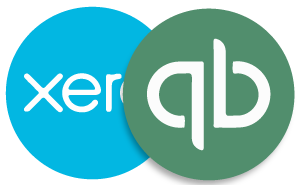Accountants love both products. The US favours QuickBooks whereas Europe prefers Xero. Both have similar functionality and enjoy the three main benefits of being in the cloud, namely:
- Use on any device (including mobiles) anywhere.
- Connect to the bank and download your transactions.
- Go paperless by saving pictures of the invoice.
- Integrate with other apps.
The reporting in Xero is clunky and time wasting but its draft invoice feature is extremely useful where managers must approve purchases. Also, making BACS payments is a doddle.
QuickBooks, on the other hand, has great reporting features and allows accounts to be nested making reading and presentation quick and easy.
When deciding between Xero and QuickBooks, consider your specific business needs and industry requirements. Xero excels in streamlining invoice approval processes and handling BACS payments efficiently, making it ideal for businesses needing rigorous purchase controls. However, its reporting interface can be cumbersome, impacting efficiency.
QuickBooks shines with its robust reporting capabilities and intuitive nested account structures, facilitating clearer financial insights and presentation. This makes it particularly suitable for organizations in the voluntary sector and manufacturing, where detailed reporting and data organization are crucial.
Ultimately, the choice between Xero and QuickBooks depends on your operational priorities, industry nuances, and desired functionality. Consulting with accounting professionals can provide valuable insights tailored to optimize your business’s financial management and operational efficiency with the right cloud accounting solution.
Baxterworld specialises in providing full-service accounts departments (Bookkeeping, Management Accounts and Compliance). We prefer Xero for multi-venue hospitality businesses, but QuickBooks is better for the voluntary sector and manufacturers. Our office is active Monday – Friday 9-5, feel free to contact us anytime for more information on our services.
